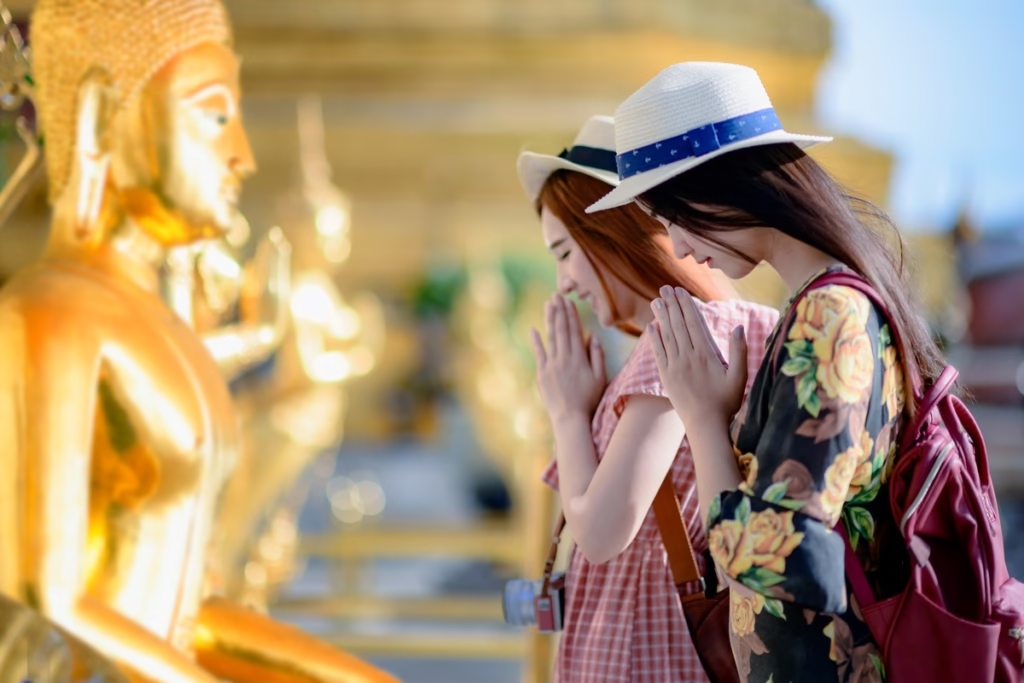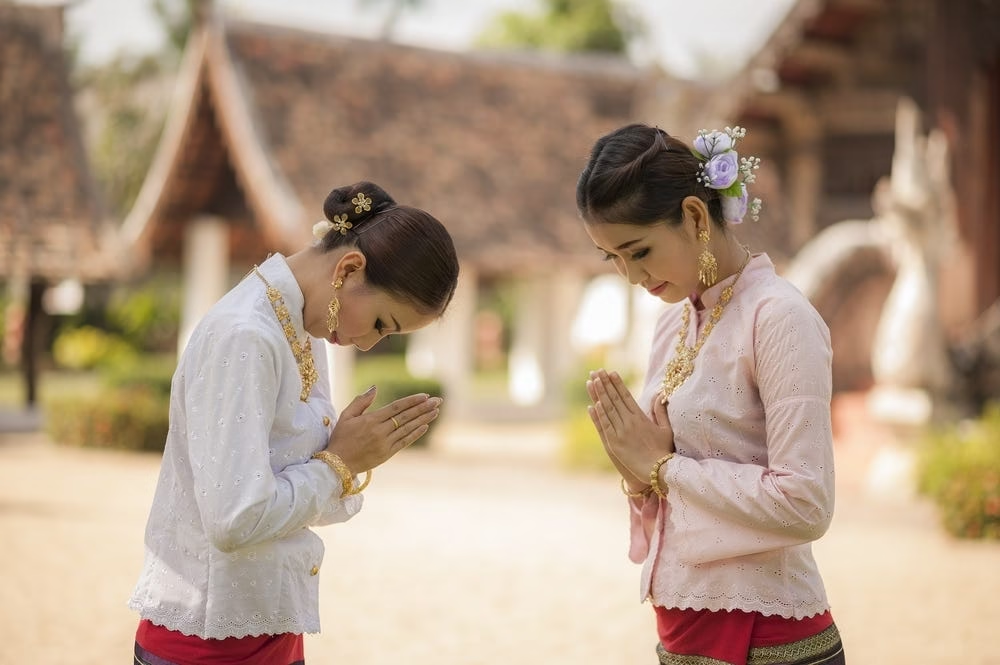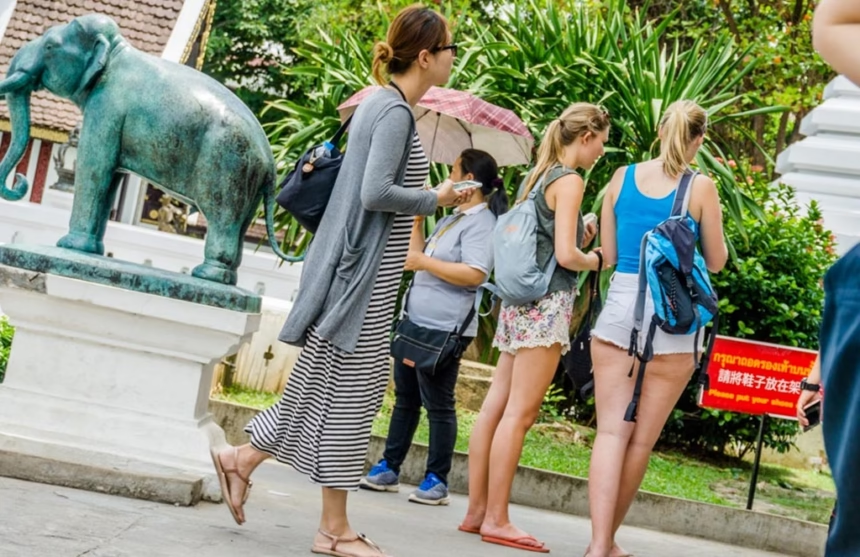BANGKOK – Thailand, the Land of Smiles, welcomes millions of travellers every year. People come for the beaches, temples, and incredible food, but there is much more beneath the surface. Thai culture is shaped by strong values of respect, politeness, and social harmony, and visitors can easily break these rules without realizing it.
Understanding local etiquette is not just about avoiding awkward moments. It shows that you respect Thai people and their way of life. When you do, you will feel more welcome and have a richer experience, whether you are in busy Sukhumvit, Bangkok, or wandering the old streets of Chiang Mai.
Here are 10 key Thailand etiquette rules that many foreigners get wrong.

From Head to Feet: What Is Sacred and What Is Not
In Thai culture, the body is viewed in a sort of “top to bottom” order. Some parts are considered pure and spiritual, while others are seen as low or unclean. This strongly influences daily behaviour.
1. Never Touch the Head (The Most Sacred Part)
In Thailand, the head is the most sacred part of the body. It is linked with the spirit and identity of a person. Touching someone’s head, even a child’s, during play, is seen as very disrespectful.
Avoid touching your head completely. Also, do not pass items over someone’s head, as this is viewed as rude.
2. Be Careful With Your Feet (The Lowest Part)
On the other hand, the feet are considered the lowest and least clean part of the body. Many visitors break this rule without meaning to.
- Do not point your feet at people, Buddha images, or sacred objects.
- Do not use your feet to point, move things, or close doors.
- Do not rest your feet on chairs, tables, or other furniture.
- When sitting on the floor, especially in a home or temple, tuck your feet behind you (often called the siam position) so they do not face anyone.
This might feel strange at first, but locals notice and appreciate the effort.
Public Behaviour: Keeping Calm and Respectful
Thai society values calmness, politeness, and the idea of “saving face”. That means people try to avoid open conflict, loud arguments, and public embarrassment.
3. Stay Calm and Avoid Public Anger
Raising your voice, arguing loudly, or showing anger in public is seen as very rude. It can cause a serious loss of face for everyone involved.
Even if you feel annoyed by a taxi fare, a booking mistake, or a misunderstanding, try to stay calm. Speak softly, smile, and explain the problem. This approach works far better in Thailand than shouting or complaining.
You will often hear the phrase “Mai pen rai,” which means “It’s okay” or “No worries”. It reflects a relaxed attitude that many Thais appreciate in others, too.
4. Stop for the National Anthem
At 8:00 AM and 6:00 PM, the Thai National Anthem plays in many public places, such as BTS and MRT stations in Bangkok and in public parks.
When you hear it, stop what you are doing and stand still until it finishes. Do not keep walking or talking loudly. This simple act is a clear sign of respect for the country and its people.
5. Dress Modestly in Temples
When visiting a wat (temple), clothing rules are strict. Modest clothes are required, not optional.
For both men and women:
- Cover your shoulders.
- Wear trousers or skirts that reach at least the knees.
- Avoid low-cut tops, tank tops, and short shorts.
If you are not dressed properly, staff may refuse entry or ask you to cover up with a scarf or sarong.
Before entering the main prayer hall, always remove your shoes. Look around and follow what others do. In some areas, hats and sunglasses should also be removed.

Social Etiquette: Greetings and the Right Way to Interact
Thai social rules can feel subtle, but they play a big part in how you are seen.
6. Return the Wai (Thai Greeting)
The wai is the classic Thai greeting. You press your palms together in front of your chest, then give a slight bow. The higher the hands and the deeper the bow, the more respect you show.
You do not need to start a wai with children or with staff such as shop workers or waiters. A smile and a simple “Sawasdee” are usually fine in those cases.
However, if an adult gives you a wai, you should return it. If your hands are full, a small nod and smile are acceptable, but never ignore someone who is greeting you politely.
7. Do Not Touch Monks (Especially if You Are a Woman)
Monks hold a very respected position in Thai society. There are clear rules about physical contact.
Women must not touch a monk or his robes. They also should not hand items straight to a monk. If a woman wants to offer something, she should place it on a cloth, table, or tray so the monk can pick it up himself.
Men should also treat monks with clear respect, speak politely, and avoid standing too close or behaving casually around them.
8. Use Your Right Hand for Giving and Receiving
Traditionally, the right hand is considered clean, while the left hand is linked with personal hygiene tasks.
When you pass money, gifts, or objects to someone, use your right hand or both hands together. Do the same when receiving items. This looks polite and respectful.
Never throw or flick money or objects towards a person. That feels insulting and disrespectful, even if you did not mean it that way.
Eating and Affection: Keep Things Simple and Subtle
Food and relationships are a big part of life in Thailand, but public behaviour still follows certain rules.
9. Do Not Eat With Your Fork
Thai food is often eaten with a spoon and fork, but they have different roles.
The rule is simple: the spoon goes into your mouth, the fork does not.
Hold the spoon in your right hand. Use the fork in your left hand to push food onto the spoon. Then eat with the spoon.
Chopsticks are common with many noodle dishes, especially Chinese-style or street food noodles, but for rice dishes, think “spoon first, fork second”.
10. Keep Public Displays of Affection Low-Key
Thailand is relaxed in many ways, but public affection is usually kept modest.
Holding hands is fine. A quick hug is usually acceptable as well.
However, long kisses, intense cuddling, or very physical behaviour in public are often seen as inappropriate.
This applies to all couples, regardless of orientation. Save the romantic moments for private spaces, and you will avoid unwanted attention or disapproving looks.
By keeping these 10 Thai etiquette rules in mind, you avoid common cultural mistakes and show real respect for local customs. You will find that people respond with warmth, kindness, and genuine smiles.
Treat the culture with care, and the Land of Smiles will feel even more welcoming.















